The Sapling is dead, long live The Sapling. Just kidding. The Sapling is most certainly not dead—but we have run out of puff, and we are taking a break. In case you aren’t subscribed to our email, here’s a bit more of an explanation.
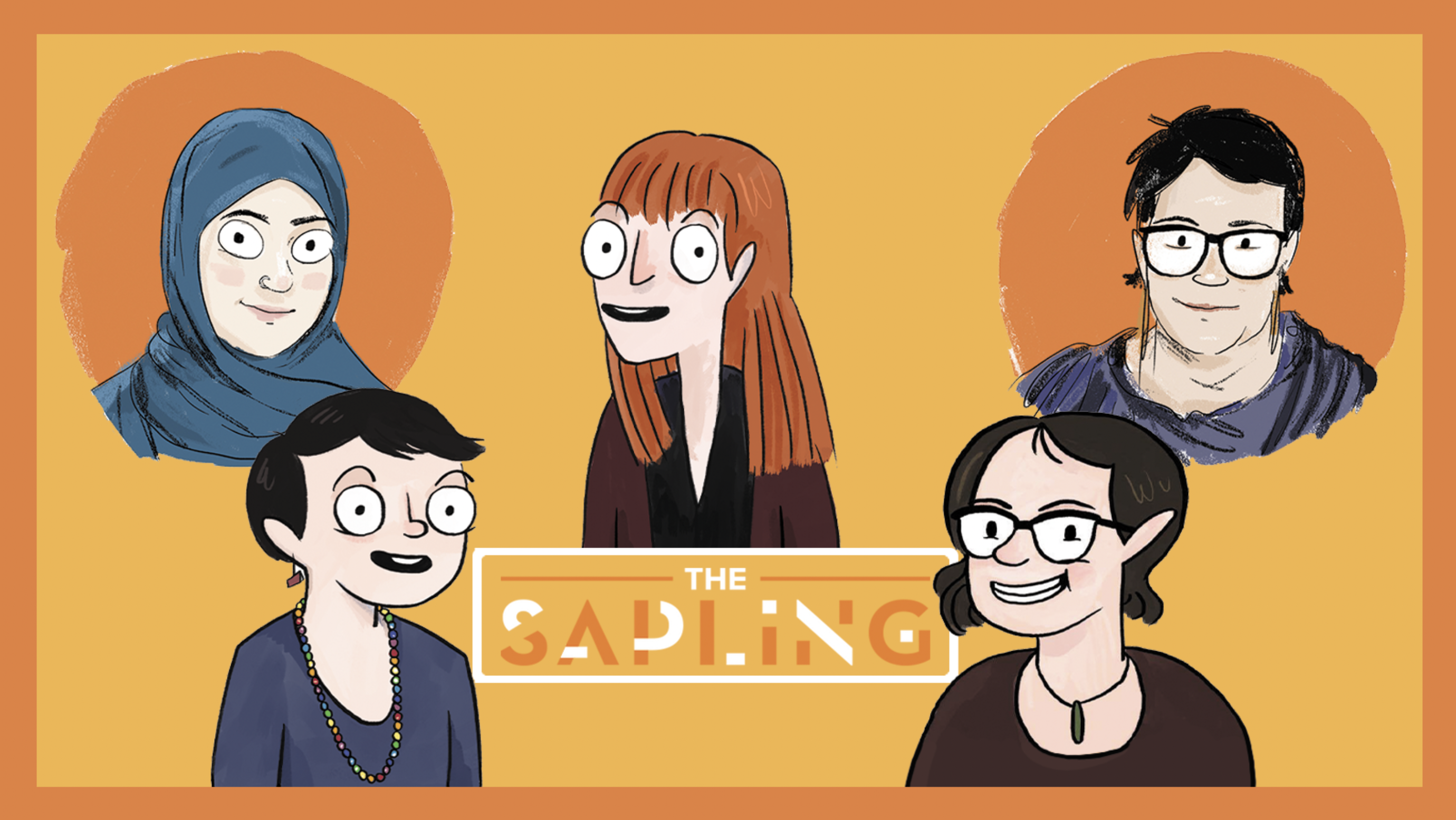
As you’ll know, The Sapling is a website dedicated to highlighting the books and lives of children’s books authors and illustrators in Aotearoa New Zealand. It’s one of the best corners of the internet for people who love books, and their creators.
It began in 2017 from a bright idea birthed by Jane Arthur and me, then as Jane had her wee boy, we signed on Thalia Kehoe Rowden as a third editor—both names may be familiar, since part of their work / life balance was the successful publication of their own books. We also hired Helena Loy to do some website loading for us, and she was a valued member of the team. Jane won the Sarah Broom Prize for Poetry in 2018, then published her book Craven, which went on to win the Jessie McKay Best First Book of Poetry prize at the 2020 Ockhams. Thalia published her first children’s picture book Rugby 1, 2, 3 / Whutupōru tahi, rua, toru with Scholastic in 2019.
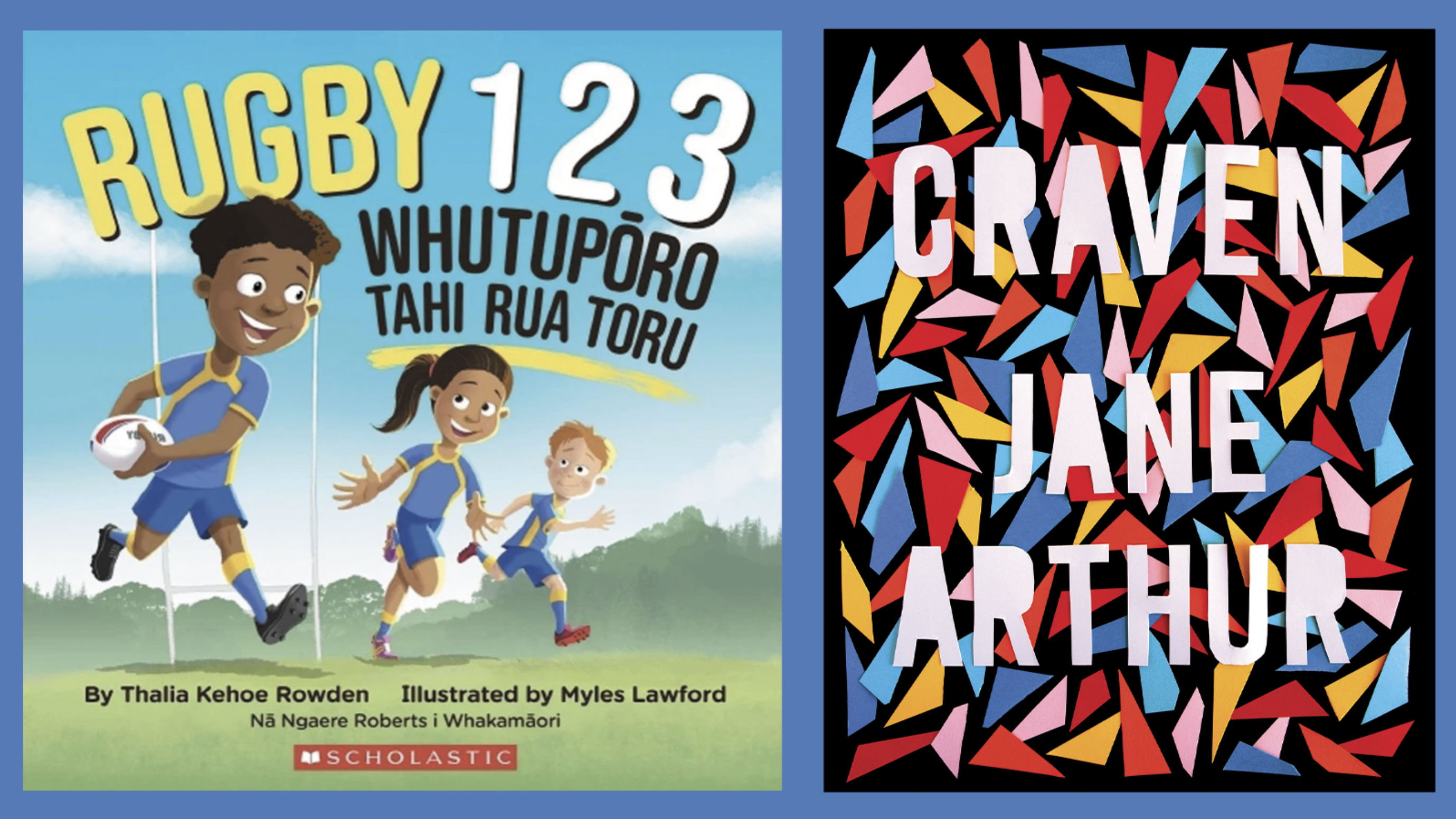
We wanted to build a conversation hub, where book people could glory in all the delights of local books for children and young adults. If you have a deep-seated love of Maurice Gee’s Halfmen of O, Tessa Duder’s Alex Quartet, Margaret Mahy’s Changeoveror The Lion in the Meadow, if you couldn’t imagine life without Joy Cowley or Patricia Grace, we dreamed that you could come to The Sapling to hear about their heirs and successors—the current crop of astonishing writers and illustrators who are creating new masterpieces for today’s kids.
We were delighted to win the Special category of the Book Industry Awards for our innovation in the book industry in 2018, and have watched The Sapling become a vital part of the literary ecosystem, with our reviews turning up on book covers, and our features being read and shared widely each week.
We wanted to build a conversation hub, where book people could glory in all the delights of local books for children and young adults.
When Jane finished her editorial role, we hired Little Unity book champion and te reo Māori learner Briar Lawry just in time for the Book Awards for Children and Young Adults in 2019. Not long after that, I left my fulltime job in the book industry, and got a new job at Te Herenga Waka—Victoria University of Wellington. We welcomed two more editors, losing Thalia, but gaining former book rep, now festival organiser Simie Simpson (Te Ati Awa) and talented Hazara migrant writer Nida Fiazi.
We have now published hundreds of articles, several every week for years. Since our first day, in March 2017, we have published over 770 reviews, interviews, cartoons, opinion pieces, and more.
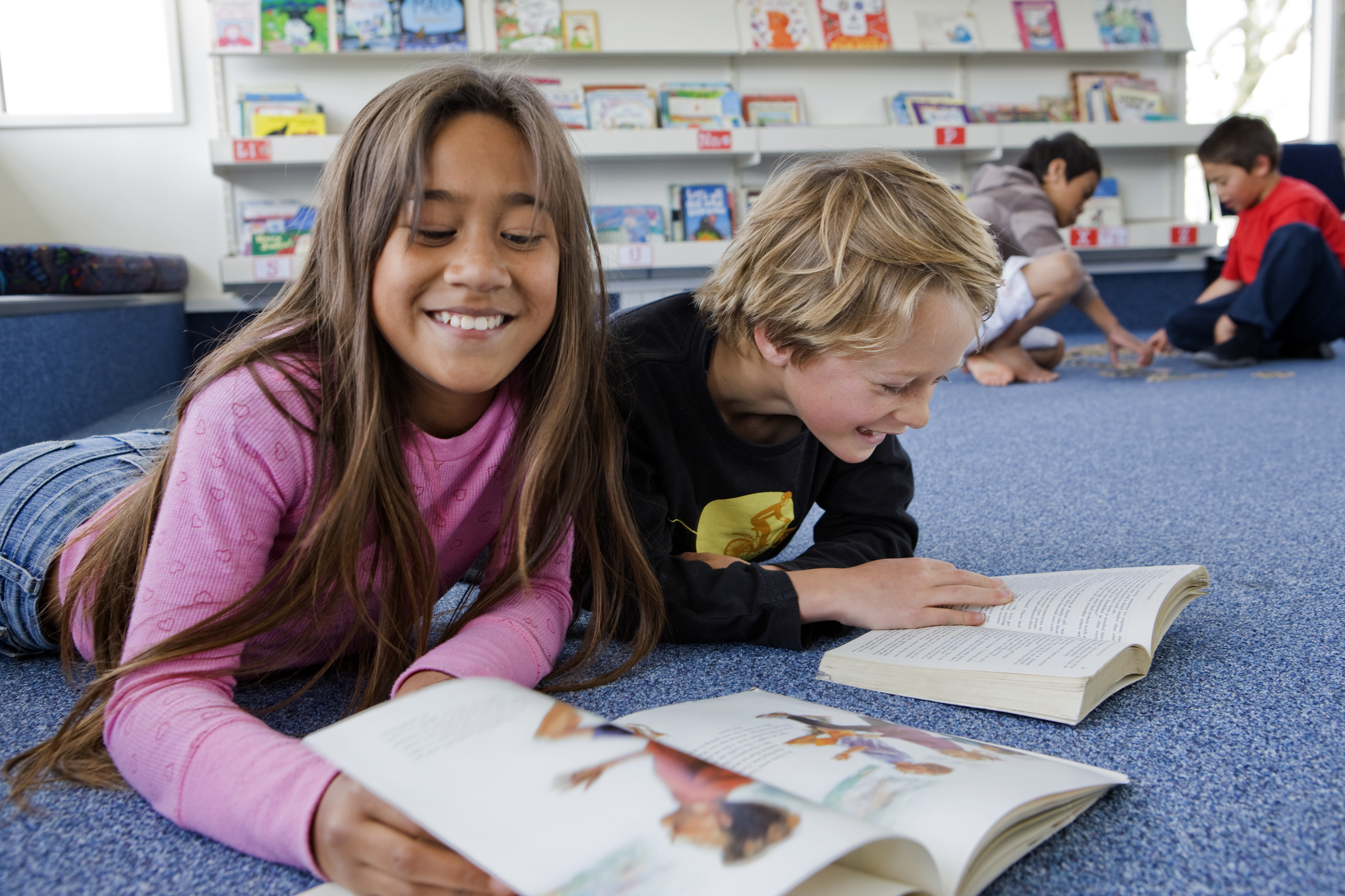
I look back on an essay I wrote at the start of my The Sapling journey, and I find a list of incredible children’s book authors, all of whom have been featured on The Sapling, many of them multiple times. Ruth Paul, Donovan Bixley, Fleur Beale, Mandy Hager, Robyn Kahukiwa (Ngati Porou)—we hope you now recognise those names, and understand they are bona fide giants of our literature.
But I also find a lot of names missing, who have become stars since we began. There have been some incredible new voices in Aotearoa children’s literature in the five years we have been publishing.
Steph Matuku (Ngāti Mutunga, Ngāti Tama, Te Atiawa) burst onto the scene in 2018 with two books: A YA title, Flight of the Fantail, and a junior fiction book, Whetū Toa and the Magician, both published by Huia Publishers. Not long before that, she wrote a fantastic ‘Reckoning’, as we call our opinion features, What the heck is Māori Literature?, which was republished by e-tangata. Illustrator Zak Waipara (Rongowhakaata, Ngāti Ruapani, Ngāti Porou, Ngāti Kahungunu) has risen to prominence, and also wrote for us in 2017, one of our best-received essays, Without our stories we are incomplete.
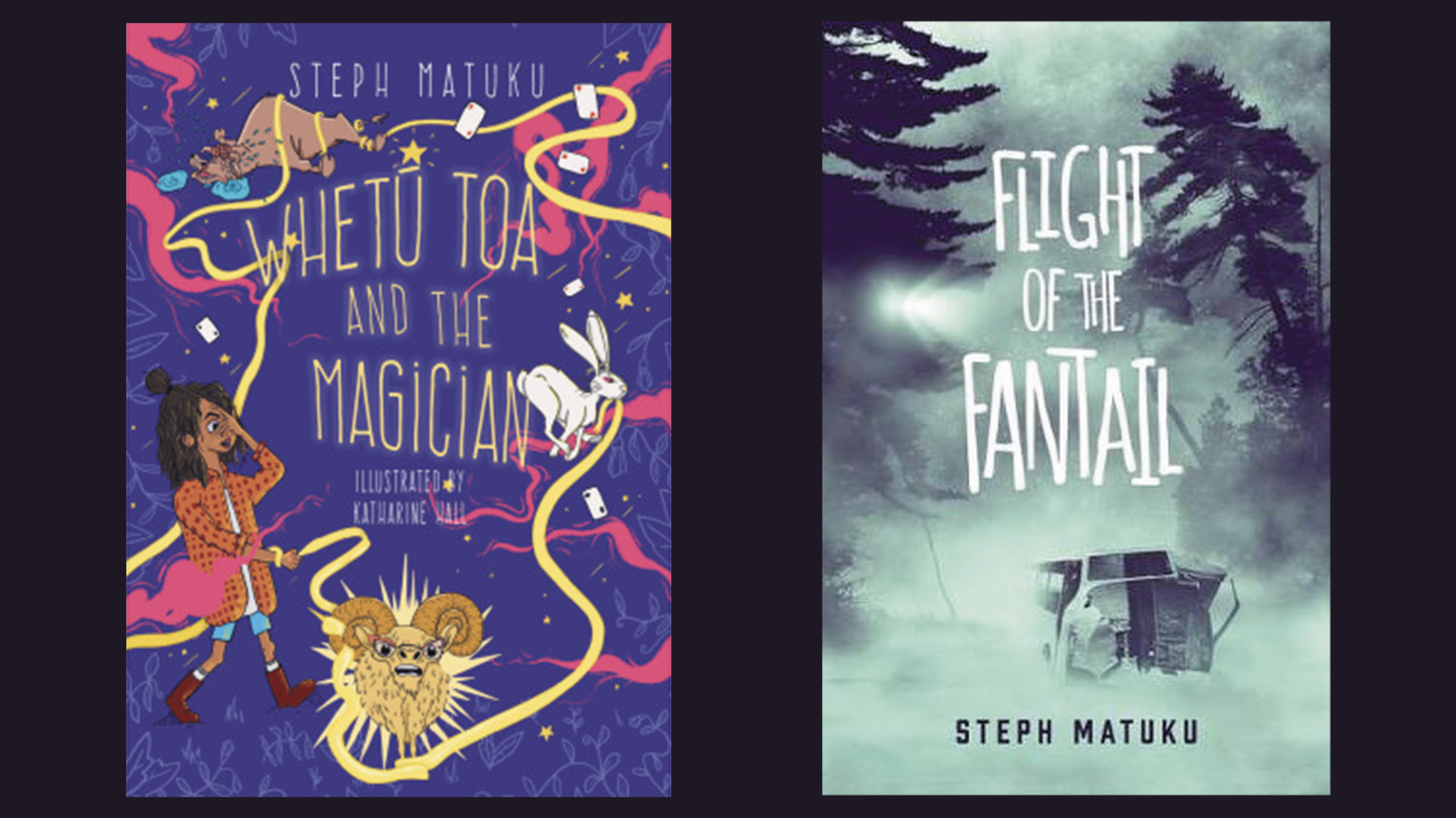
We are particularly proud of our annual Te Wiki o te reo Māori celebrations, and we’ve hung on this year until we could mark the week with our fifth special collection of writing to mark the week. In our first three years, we had incredible guest editors Nadine Anne Hura (Ngāti Hine, Ngāpuhi), Vini Olsen-Reeder (Pāhauwera, Ngā Tokorima a Hinemanuhiri, Tūhoe, Tāmanuhiri, Rangitāne), and Kura Rutherford (Ngāpuhi, Te Rarawa) who commissioned and wrote a full week of searing, important pieces on a huge range of topics. Last year, editor and dedicated te reo learner Briar took up the challenge, and this year we gathered our content as a group.
This year’s Wiki features included a piece we published first in te reo Māori, then the next day in English, a pattern we’ve established for many of our commissions throughout the past few years. Zeb Nicklin (Ngā Tokorima a Hinemanuhiri (Te Wairoa), Pāhauwera (Mōhaka, Raupunga), Ruapani of Waikaremoana, Tūhoe and Tāmanuhiri) interviewed the award-winning Ben Ngaia (Te Ātiawa) for his book Ngake me Whatāitai. Then came a stunning interview by Whiti Hereaka (Ngāti Tūwharetoa, Te Arawa) with Gavin Bishop (Ngāti Awa, Tainui) about his latest magnum opus, Atua. Regular contributor Kura then published an incredible interview with Andre Ngāpō (Ngāti Porou ki Hauraki, Ngāti Tamaterā, Ngāti Awa and Ngāpuhi)—best known from inside the covers of School Journals.
The rise in publishing in te reo Māori and by Māori authors, for all ages, has been something that we’ve watched with pleasure—though there is more to be done. We’ve also seen a long overdue increase in the diversity of cultures represented in our literature, and while we have observed and commented on some missteps, the overall trend is towards respect and nurturing of cultures beyond the Pākehā ‘default’.
The rise in publishing in te reo Māori and by Māori authors, for all ages, has been something that we’ve watched with pleasure…
One of my greatest pleasures as an editor has been matching authors to interview one another, and these co-interviews, where the questions fly in both directions, have become one of our hallmarks. I remember the sheer joy of matching Stacy Gregg with Kelly Wilson, to talk all things horsey and booky, one October while at a Christmas book fair run by HarperCollins. We’ve since paired the likes of Cristina Sanders with Joanna Groschowitz, Janet Hunt and Gillian Candler, Bernard Beckett and James Norcliffe, and Donovan Bixley with Ruth Paul.
And then there’s Giselle Clarkson. An absolute highlight of every month has been getting Giselle’s latest work into our inbox. She has published over 30 cartoon ruminations on everything from avocado toast to bird arms, and from Mog’s death to why there should be more statues to beloved children’s book characters. Meanwhile, since she started creating for us, she’s also published five books and counting—one of them being the illustrated cookbook Egg & Spoon, which we were excited to see win the non-fiction section of the NZ Book Awards for Children and Young Adults this year.
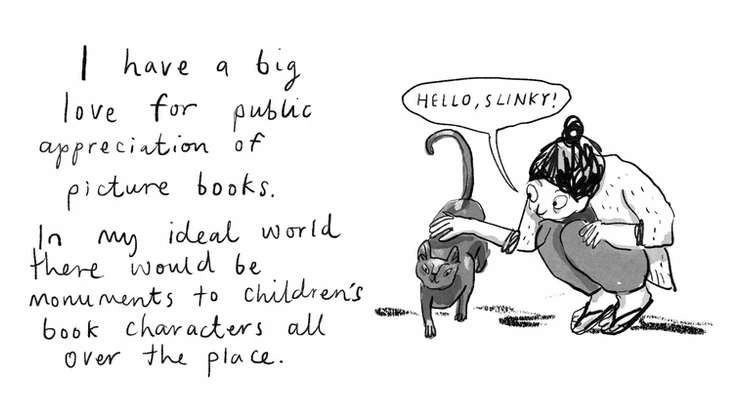
And we’re not done yet. We’ve been very fortunate to be funded reliably by Creative NZ for four years running, and we haven’t yet been declined. This is very firmly not a case of missing out on support. The response to our closing has ensured we know how valuable we are for creators, publishers, and booklovers alike.
We are instead just pausing. We need to redevelop the site—the still-sexy front cloaks a disaster zone of a back-end. And we need to look at our workload and who we need on board. Some of us will be back, some of us might not be. We have always paid our contributors, and in more recent years we have been able to allocate an honorarium to the editors. But that doesn’t nearly cover our time, which makes all the editorial work of the The Sapling—from brainstorming and commissioning, to editing, proofreading, publishing and promoting—something that comes on top of paid work, family life, study, and all the other things we love: like reading! We adore what we have been able to create, for all lovers of books in Aotearoa. We just need to find a more sustainable model to fuel this creating.
We adore what we have been able to create, for all lovers of books in Aotearoa.
To say goodbye, here are some top hits from the Sapling, to keep you keen on kids’ books. We’ll pop up now and then on Facebook and Twitter while we’re having a pause to tell you about our incredible backlist. And we’ll also be publishing a monthly essay about children’s literature, by either myself or Briar, over on ReadingRoom.
- Our most read individual article is Farewell, Dear John, we miss you already, which still has the power to move me to tears.
- Our top reckoning is Without our stories we are incomplete, by Zak Waipara.
- Oh and remember when we decided to get a few politicians to talk about how books formed their childhood? Turned out the only one who managed to fit us in was the Prime Minister herself: Jacinda Ardern, pre-Neve.
- Our most popular Wiki o te reo Māori piece was guest editor Nadine Anne Hura’s practical manifesto, Te reo Māori in Schools: 10 things you can do.
- And our best list! Thalia is our list queen, and here’s her very first one, titled Families come in different shapes.
With that, I bid you adieu. I’ll be back in a couple of months talking children’s books for Christmas, as a monthly feature on ReadingRoom for The Sapling that is, was, and will continue to be.

Sarah Forster has worked in the New Zealand book industry for 15 years, in roles promoting Aotearoa’s best authors and books. She has a Diploma in Publishing from Whitireia Polytechnic, and a BA (Hons) in History and Philosophy from the University of Otago. She was born in Winton, grew up in Westport, and lives in Wellington. She was a judge of the New Zealand Book Awards for Children and Young Adults in 2017. Her day job is as a Senior Communications Advisor—Content for Te Herenga Waka—Victoria University of Wellington.



